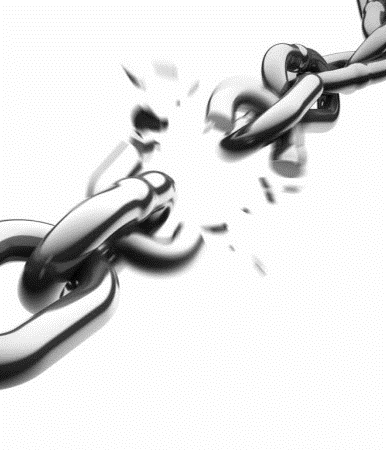When and why should we fast? What changes when we fast? How are fasting and prayer related? Biblically fasting represents true sorrow for sin. Without that it is not a fast. Fasting is affliction of the soul in true repentance
Fasting
Overview
Matt 6:16-18
- Objectives
- Bible Passages
- Reasons for Fasting
- Ritual Fasting
- Righteous Fasting
- Result of Fasting
- Recap
- Discussion
OBJECTIVES
To understand:
- And acquire the right motives for fasting
- The benefits and impact of fasting
- The biblical perspective on fasting
- Other equivalents of fasting
Ritual Fasting
Isaiah 58:3,4;‘Why have we fasted, and you see it not?
Why have we humbled ourselves, and you take no knowledge of it?’
Behold, in the day of your fast you seek your own pleasure,
and oppress all your workers.
4 Behold, you fast only to quarrel and to fight
Cross references: Matt 6:16; Jer 14:11-12
What is Fasting
Self denial (usually food). Humbling, and smiting of the soul to mourn for sin of self, others and the nation.
Fasting is always associated with prayer and right living.
A fast is a day to afflict the soul; if it does not express true sorrow for sin, and does not promote the putting away of sin, it is not a fast. [1]
Reasons for Fasting
- P rotection from evil: on the Lord’s mission (Ezra 8:21), of the Lord’s people (Esther 4:16)
- R elease from demons, bondage: Mark 9:29, Isaiah 61:1
- A fflict Soul: 1 Kings 21:27-29; 1 Samuel 7:6; Joel 2:12-15; Daniel 9:3
- Y ield to God’s will: Is 58:5,6; Matt 26:39
- E mpower God’s leaders: Acts13:3,14:23
- R epentance: Daniel 9:5, Nehemiah 9:1-3
- S alvation: 2 Samuel 12:16, Jonah 3:5-9, Luke 2:37
Ritual Fasting
Isaiah 58:3,4;‘Why have we fasted, and you see it not?
Why have we humbled ourselves, and you take no knowledge of it?’
Behold, in the day of your fast you seek your own pleasure,
and oppress all your workers.
4 Behold, you fast only to quarrel and to fight
Cross references: Matt 6:16; Jer 14:11-12
Righteous Fasting
Isaiah 58:6 “Is not this the fast that I choose:
to loose the bonds of wickedness,
to undo the straps of the yoke,
to let the oppressed go free,
and to break every yoke?
Is it not to share your bread with the hungry
and bring the homeless poor into your house;
when you see the naked, to cover him,
and not to hide yourself from your own flesh? Isaiah 58:7
Result of ritual Fasting
Jer 14:11 The Lord said to me: “Do not pray for the welfare of this people. 12 Though they fast, I will not hear their cry, and though they offer burnt offering and grain offering, I will not accept them. But I will consume them by the sword, by famine, and by pestilence.”
Result of Righteous Fasting
Then shall your light break forth like the dawn,
and your healing shall spring up speedily;
your righteousness shall go before you;
the glory of the Lord shall be your rear guard.
9 Then you shall call, and the Lord will answer;
you shall cry, and he will say, ‘Here I am.’
If you take away the yoke from your midst,
the pointing of the finger, and speaking wickedness,
Isaiah 58:8,9
Result of Righteous Fasting
10 if you pour yourself out for the hungry
and satisfy the desire of the afflicted,
then shall your light rise in the darkness
and your gloom be as the noonday.
11 And the Lord will guide you continually
and satisfy your desire in scorched places
and make your bones strong;
and you shall be like a watered garden,
like a spring of water,
whose waters do not fail. Isaiah 58:10-11
Recap
Protection from evil: (Ezra 8:21), (Esther 4:16)
Release from bondage: Mark 9:29, Isaiah 61:1
Afflict soul: 1 Kings 21:27-29; 1 Samuel 7:6; Joel 2:12-15;
Yield to God’s will: Is 58:5,6; Matt 26:39
Empower God’s leaders: Acts13:3,14:23
Repentance: Daniel 9:3-5, Nehemiah 9:1-3
Salvation: 2 Samuel 12:16, Jonah 3:5-9, Luke 2:37
Discussion
1.Why does Jesus tell the disciples not to fast in his presence (Luke 5:33)?
2.Compare Isaiah 58:7 with Matt 25:35-40. Who should the feeding, covering, clothing be directed at? (v 40)
3.How does the above compare with Christ’s ministry in Isaiah 61:1 and impact our calling as His disciples?
4.How does this contradict proponents of social gospel who use this passage to elicit funds for the poor?
5.What promises, encouragement and reward can we draw from fasting?(Matt 6:18; Isaiah 58:1-11)
References
1.Matthew Henry Commentary
2.Elliot’s Commentary for English Readers

